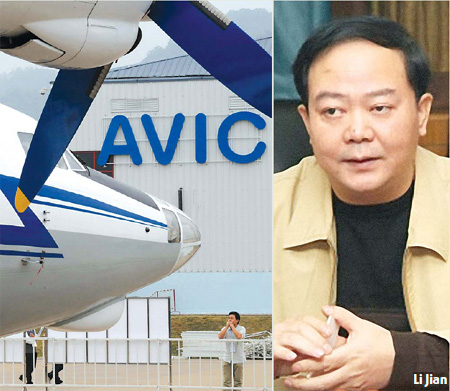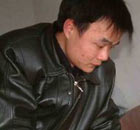Top Biz News
Debating the morals of vice mayor's stock trading
By Xin Zhiming (China Daily)
Updated: 2010-01-18 08:04
 |
Large Medium Small |

SOE chief and former deputy mayor attributes profits to skills
Li Jian says he is an average stock investor but the Chinese media call him a genius.
His track record speaks for itself. In just 11 trading days last July the 40-year-old made 170,000 yuan ($25,000).
Impressive as his performance was, Li would not have aroused nationwide attention in this highly volatile market but for allegations he was trading on insider information. It is claimed he invested in a company and then became senior executive of its parent corporation.
Adding to the murkiness is the fact he was deputy mayor of Shaoguan city in China's Guangdong province, where he was in charge of finance.
"I'm no different from any other ordinary investor (when buying stock)," Li told the media. "It was a normal individual investment."
Critics, however, have been quick to condemn him, claiming it would have been impossible for him to have profited so handsomely without insider knowledge gained from his government position.
Li said that despite his official title as deputy mayor, he spent a long time researching Xi'an Aircraft International Corporation (XAIC), a domestic A-share listed company, before he made an investment in it.
His explanation failed to disperse public skepticism because he applied for the post of deputy general manager of an aircraft company under the Aviation Industry Corporation of China, which owns XAIC. Given the two companies' close connection, the public has expressed doubts that Li is as clean as he claims.
Li's case has triggered hot debate in China, where the public has long harbored suspicions about insider trading despite the strengthening of regulations concerning information disclosure in recent years.
While some believe Li should resign and be held responsible for what they claim is a misdemeanor, if not a crime, others are urging regulators to hold a formal investigation into the case to restore investor confidence in the young and sometimes controversial market.
Crime and no punishment?
According to media reports, Li bought 600,000 yuan of XAIC stocks on July 1 last year. Its parent company started to launch a global recruitment program seeking senior managers in late February and Li applied and got the opportunity to be interviewed in mid-June. In August, he was short-listed and finally became deputy general manager of the firm.
At that time, the price of XAIC stock was rising strongly because of market speculation that its parent company would inject highly profitable assets into the listed company.
In early December, XAIC confirmed that it planned to issue shares to its parent company for the latter's asset injection, which verified previous market speculation. Some analysts say Li must have used his connection with the parent company to know in advance about the asset restructuring.
Sina.com.cn, the country's major news portal, conducted an online survey, in which more than 93,000 people participated from Jan 12. More than 87 percent of the respondents said they believed there must have been some insider trading.
He must have known that the stock price (of XAIC) would rise, something that other ordinary investors didn't know," said 41-year-old Zhao Yong, a Beijing taxi-driver.
"He, as deputy mayor, must have known something before he bought the stock," said Yang Qian, a sales manager of an auto-parts dealer in Beijing.
Li said although he applied for a position with XAIC's parent company, he never took advantage of that to benefit his investment decision-making.
"To be frank, I'm an expert in stock investment," he said. "I'm no novice at stock buying; I started investing in the stock market in 1994 (four years after the launch of the country's stock market), when I majored in accounting and finance in the graduate program of Shanghai University of Finance and Economics."
China's Securities Law and the Criminal Law have stipulations banning insider trading on the stock market, but they are both highly theoretical and hard to implement, analysts said.
In Li's case, the stock regulators at least should launch an investigation since it has aroused widespread public attention, said Zhang Yuanzhong, a lawyer with Beijing's Wentian Law Firm. "The public must be informed if and how Li knew the stock price would rise and whether he was involved in insider trading."
If that were the case, Zhang said, investigators should try to discover whether someone had tipped him off for the purpose of bribing him, because he was deputy mayor at the time.
|
||||
There are few signs, however, of regulators having started an investigation.
The company to which Li belongs claimed that there was no insider trading involved, although it found 37 people, including Li, shouldn't have but did buy XAIC stocks. They were mostly relatives of corporate executives.
The company said it would confiscate their earnings from the investment in the XAIC stock but would not take further action against them.
"Although no investigation has yet to confirm it, this seems like typical insider trading," said Zhong Jiyin, a Chinese Academy of Social Sciences economist on corporate governance. "Li couldn't explain in a rational way why he had singled out that stock" among the more than 1,600 listed companies, he said.












